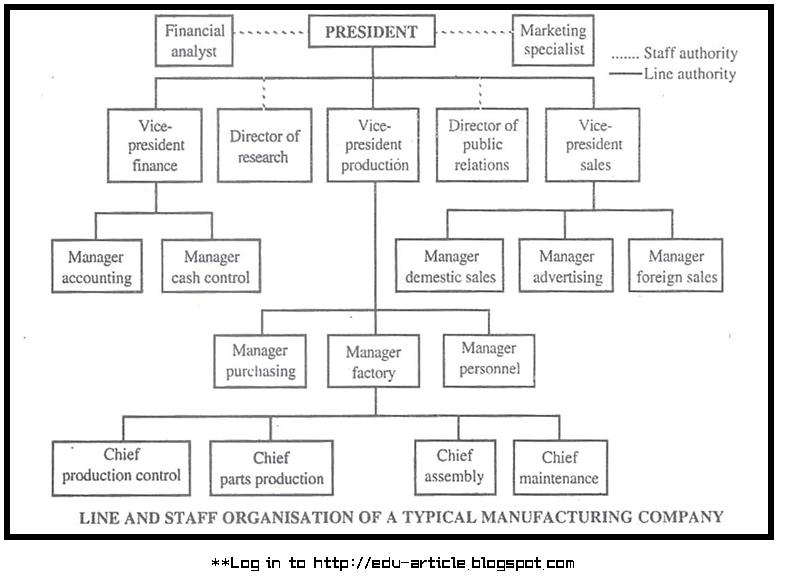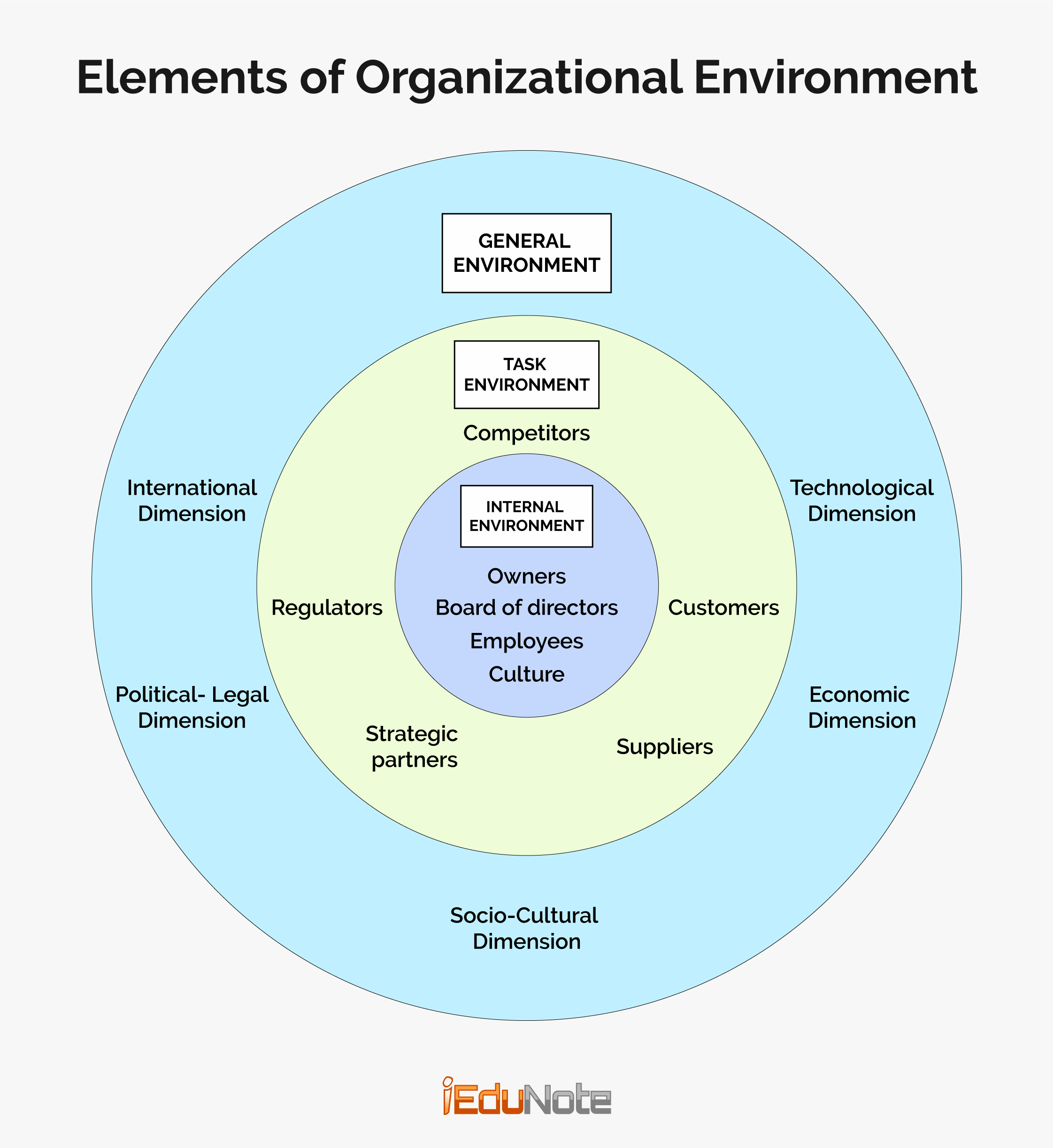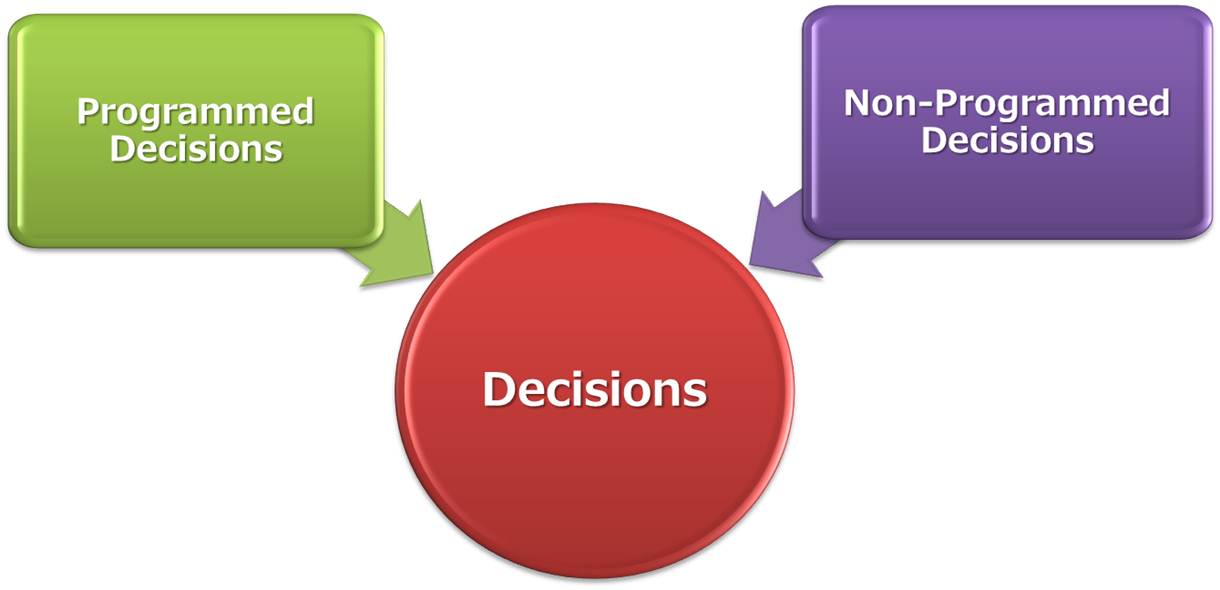For running an organization properly both line and staff member’s contribution is required and their relationship must be well defined in the organizational structure.
Much confusion has arisen among both scholars and managers as to what “line” and “staff’ mean.
As a result, there is probably no area of management that causes more difficulties, more friction, arid more loss of time and effectiveness.
Yet the line-and-staff relationships of the members of an organization must necessarily affect the operation of the enterprise.
One widely held view of line and staff is that line functions are those that have a direct impact on the accomplishment of the objectives of the enterprise.
On the other hand, Staff functions are those that help the line persons work most effectively in accomplishing the objectives.
The people who adhere to this view almost invariably classify production and sales (and sometimes finance) as line functions and accounting, personnel, plant maintenance, and quality control as staff functions.
An organization structure which is composed of only line executives is termed as a line organization. Imaginary structure of such an organization may be as under:

An organization structure which is composed of both line executives and staff executives is termed as line and staff organization.
An imaginary structure of such a type is shown below;

The Nature of Line and Staff Relationships
A more precise and logically valid concept of line and staff is that they are simply a matter of relationships.
Line authority gives a superior a line of authority over a subordinate. It exists in all organizations as an uninterrupted scale or series of steps.
Hence, the scalar principle in the organization.
The clearer the line of authority from the ultimate management position in an enterprise to every subordinate position is, the clearer will be the responsibility for decision-making and the more effective will be organization communication.
In many large enterprises, the steps are long and complex; but even in the smallest; the very fact of organization introduces the scalar principle.
It, therefore, becomes apparent from the scalar principle that line authority is that relationship in which a superior exercise direct supervision over a subordinate authority relationship being in direct line or steps.
The nature of the staffing relationship is advisory. The function of people in a pure staff capacity is to investigate, research, and give advice to line managers.
Benefits of Staff
There are many advantages and benefits of the use of staff. A few of them are:
Handling complex managerial functions
The necessity of having the advice of qualified staff specializes in various areas of an organization can scarcely be overemphasized, especially as operations become more and more complex.
Assisting in decision-making
Managers are now faced with the necessity of making decisions that require expert knowledge in matters like environmental issues, strengths, and weaknesses of the organization, so on and so forth.
Relieving an over-burdened top executive
Staff specialists devote their time to think, to gather data, and to analyze them on behalf of their busy superiors. It is a rare top-level executive, who has the time or will take the time, to do those things that a staff specialist can do so well.
Limitations of Staff
The use of staff specialists can ensure many benefits to organizations but the nature of staff authority and the difficulty of understanding it leads to certain problems in practice.
An escape clause for staff specialists
Staff specialists only propose a plan; others must decide to adopt the plan and put it into operation. This creates an ideal situation for shifting blame for mistakes.
The staff will claim that it was a good plan and that it failed because the operating manager was inefficient and ineffective.
Line authority being undermined
Operating (line) managers represent the mainline of the organization and they also gain a degree of indispensability.
The staff specialists may, however, forget that their value lies in the extent to which they strengthen line managers and also that they are to counsel and not to order.
They need to remember that if they undermine line authority, they risk becoming expendable. If there is an expendable person in an organization, it is most likely to be a staff specialist.
The impracticality of staff recommendations
Since staff people do not implement what they recommend, it is possible that they may think in a vacuum, thereby making their recommendations impractical and which in their turn, often results in friction, loss of morale and sabotage.
Disunity in command
Unity of command is unavoidable for the management of any organization to reach its goal.
So, multiple authorities, created out of the use of staff specialists, may create disastrous consequences.
Complicacy in leadership and control
The chief executive of a large organization may be so busy dealing with the advice and recommendations of a large number of staff specialists that he finds little time to devote to operating departments.
Line authority is responsible to run the organization according to is a strategic plan. Staff authority plays an advisory role as their job is to investigate, research, and give advice to line managers.

